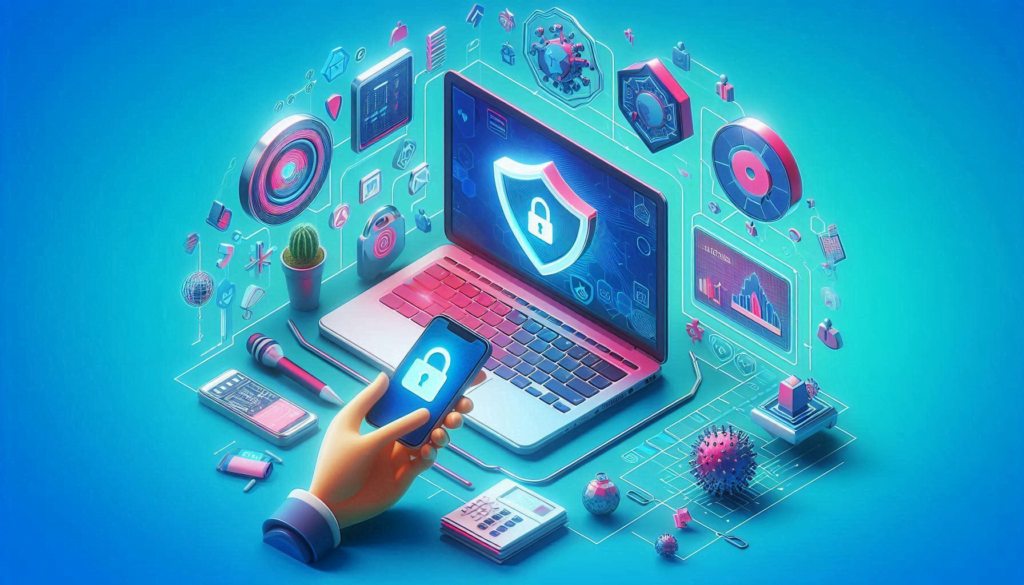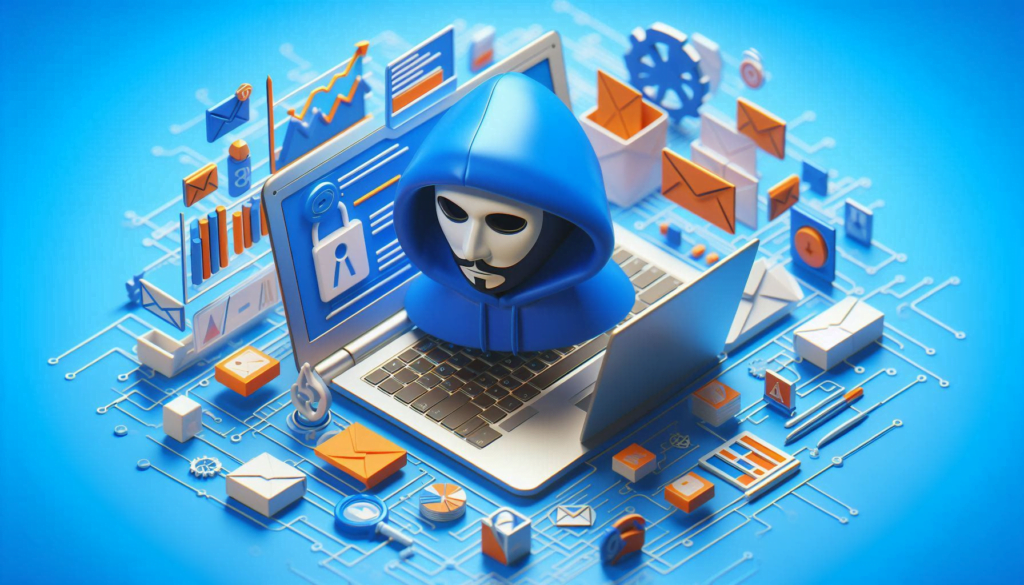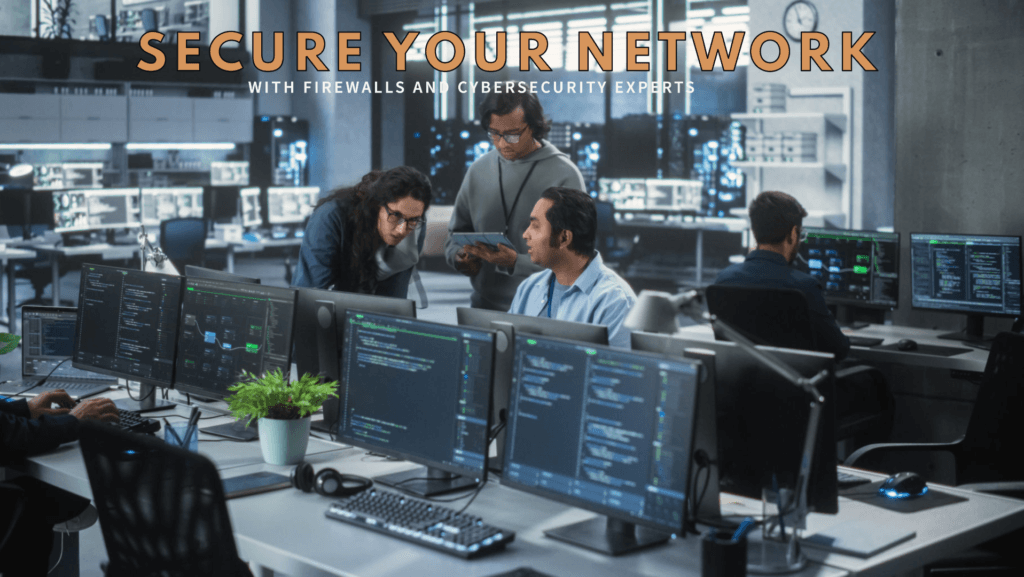Technology Moment, In today’s digital world, where information flows faster than ever, the need to safeguard sensitive data and uncover digital crimes has become crucial. Enter the forensic computer analyst—a tech-savvy detective who pieces together the digital clues left behind in cybercrimes, fraud investigations, and data breaches.
Whether it’s recovering deleted files, analyzing malware, or assisting law enforcement with complex cases, forensic computer analysts play a pivotal role in delivering justice in the digital age. If you’ve ever been curious about the skills required to succeed in this challenging yet rewarding field, you’re in the right place. Let’s explore what it takes to become a top-notch forensic computer analyst and make your mark in the evolving world of cybersecurity.
This is where forensic computer analysts come in — they are the digital detectives of the modern world. Their role is crucial in solving cybercrimes and providing evidence that can be presented in legal proceedings. These professionals analyze computer systems, retrieve hidden or deleted data, and trace the origins of unauthorized access.
Imagine a case where a major corporation faces a severe data breach. Sensitive client information is stolen, and the company’s reputation hangs by a thread. A forensic computer analyst steps in, sifts through terabytes of data, and pinpoints the hacker’s identity while recovering critical lost information. This is just one example of the invaluable work they do.
The increasing dependency on technology has created a booming demand for experts who can uncover digital evidence and ensure cybersecurity. As cybercriminal tactics grow more sophisticated, the role of forensic computer analysts becomes more significant than ever. In this article, we’ll explore the skills you need to succeed in this exciting and impactful field, guiding you toward a rewarding career in digital forensics.
What Does a Forensic Computer Analyst Do?
A forensic computer analyst plays a crucial role in the digital investigation process. They specialize in recovering, analyzing, and preserving digital evidence from computers, networks, and other electronic devices. Their work helps law enforcement agencies, private companies, and government organizations solve crimes, resolve data breaches, and protect sensitive information.
Key Responsibilities of a Forensic Computer Analyst
- Digital Evidence Collection : One of the primary tasks involves gathering digital evidence without altering or corrupting it. Analysts use specialized tools to capture and duplicate data securely from devices such as computers, hard drives, smartphones, and cloud storage systems.
- Data Recovery : Even if someone attempts to delete files, forensic analysts can often recover this information. This includes recovering deleted emails, corrupted files, and hidden data that might be key to solving cases.
- Analyzing Cybercrimes : Forensic analysts investigate cybercrimes such as hacking, identity theft, online fraud, and insider threats. They track down how the breach occurred and identify the perpetrator’s digital footprint.
- Network and System Analysis : In complex cases involving large networks, analysts examine logs, system activities, and network traffic to pinpoint unusual activities that could indicate unauthorized access or malicious activities.
- Malware Investigation : If a computer or network has been infected with malware, analysts dissect the malicious code to understand how it works, what damage it causes, and where it originated.
- Ensuring Chain of Custody : Maintaining a proper chain of custody is critical for legal proceedings. Forensic computer analysts ensure that digital evidence is handled and stored in compliance with legal standards so that it remains admissible in court.
- Writing Reports and Providing Expert Testimony : Analysts document their findings in detailed reports, which are often used as key evidence in legal proceedings. They may also testify in court as expert witnesses, explaining technical concepts in simple terms.
Real-Life Applications
- Solving Financial Fraud Cases: Analysts track suspicious financial transactions by examining logs and user activity to identify fraudulent patterns.
- Tracking Cybercriminals: In cases involving ransomware or data breaches, forensic experts analyze IP addresses and encrypted communications to trace the perpetrators.
- Corporate Investigations: Companies hire forensic analysts to investigate data leaks, employee misconduct, or insider threats.
- Legal Proceedings: Their evidence is vital in court cases where digital data plays a role, such as intellectual property theft and harassment cases.
Table of Contents
Why Is This Career in High Demand?
The demand for forensic computer analysts has surged in recent years, driven by the rapid digitalization of our lives and the increasing sophistication of cybercrimes. As more personal, business, and governmental operations migrate online, the need for experts who can investigate, analyze, and secure digital evidence has become essential. Let’s break down the key factors contributing to the rising demand for this career:
1. Rise in Cybercrime : Cybercriminals are constantly evolving their tactics, targeting individuals, businesses, and even government institutions. High-profile cases involving ransomware attacks, data breaches, identity theft, and financial fraud are becoming more frequent. Forensic computer analysts play a crucial role in tracking down these criminals by uncovering digital evidence and determining the source and nature of cyberattacks.
2. Growing Dependence on Digital Devices : Our reliance on digital devices and cloud storage has created vast amounts of data. With smartphones, laptops, and IoT devices being used for both personal and professional tasks, forensic experts are needed to analyze and recover data in cases involving fraud, hacking, or even civil disputes.
3. Legal Requirements for Digital Evidence : Courts are increasingly relying on digital evidence to prosecute criminals. Forensic computer analysts help collect, preserve, and present evidence in a manner that holds up in court. Without proper digital forensics, crucial evidence may be lost or deemed inadmissible in legal proceedings.
4. Protection of Sensitive Data : In industries like finance, healthcare, and defense, safeguarding sensitive data is paramount. When data breaches or insider threats occur, forensic analysts step in to identify vulnerabilities, assess damage, and prevent future incidents. Companies are investing heavily in forensic experts to safeguard their assets and reputations.
5. Increasing Regulatory and Compliance Demands : Governments and regulatory bodies have introduced stringent cybersecurity regulations to protect personal and corporate data. Organizations must comply with these regulations, and forensic analysts help ensure that security measures are adequate while investigating potential breaches.
6. The Need for Proactive Cyber Defense : Forensic computer analysts are not just reactive experts—they also contribute to proactive defense strategies. By analyzing past incidents, they help organizations understand threat patterns and improve security systems to prevent future attacks.
7. Globalization and Remote Work : The rise of remote work has expanded the potential attack surface for cybercriminals. With employees accessing corporate networks from various locations, forensic analysts are critical in identifying security gaps and responding to incidents in distributed environments.
8. National Security and Counterterrorism Efforts : Governments rely on forensic computer analysts for counterterrorism operations and national security efforts. These experts analyze digital communications, track cyber espionage activities, and assist in securing critical infrastructure.
Educational Background and Certifications Required
Becoming a successful forensic computer analyst requires a blend of formal education, technical training, and industry-recognized certifications.
1. Educational Background
While there isn’t a single definitive path, having a strong academic foundation in computer science, cybersecurity, or related fields is highly advantageous. Below are common degree programs that pave the way for a career in digital forensics:
- Bachelor’s Degree:
- Computer Science: Offers in-depth knowledge of programming, algorithms, and systems architecture, which are fundamental for digital investigations.
- Cybersecurity: Focuses on security protocols, threat analysis, and ethical hacking techniques — all vital for uncovering cybercrimes.
- Information Technology (IT): Provides insights into network systems, software management, and data storage methods that forensic analysts frequently examine.
- Master’s Degree (Optional): Pursuing advanced education can open doors to more senior roles in forensics, particularly in research or leadership positions. A Master’s in Digital Forensics or Information Security can provide specialized knowledge.
- Other Relevant Fields: Criminal justice degrees with a focus on digital crime are another option, especially if paired with tech certifications.
2. Certifications to Boost Your Career
Certifications validate your technical skills and show potential employers that you’re qualified to handle the complexities of forensic investigations.
- Certified Ethical Hacker (CEH) : This certification covers techniques used by both hackers and security professionals to assess system vulnerabilities. It’s particularly valuable for forensic analysts working on cases involving system breaches.
- GIAC Certified Forensic Analyst (GCFA) : Offered by the SANS Institute, GCFA focuses on in-depth knowledge of digital forensics, including malware analysis and evidence acquisition.
- Certified Information Systems Auditor (CISA) : While primarily designed for IT auditors, this certification is beneficial for forensic analysts tasked with investigating security breaches.
- Certified Forensic Computer Examiner (CFCE) : This certification focuses on evidence handling, preservation, and advanced forensic analysis techniques.
- EnCase Certified Examiner (EnCE) : Designed for professionals who use EnCase software, it provides essential skills in examining computer evidence and preparing comprehensive reports.
- CompTIA Security+ : This is a foundational certification that covers basic security protocols, making it an excellent starting point for those new to cybersecurity.
3. Importance of Certifications
Certifications not only help you stay up to date with emerging technologies but also increase your credibility with employers. Some law enforcement agencies or private investigation firms require certain certifications before hiring forensic computer analysts.
4. Additional Training Opportunities
- Bootcamps and Online Courses: Platforms like Coursera, Cybrary, and SANS Institute offer hands-on training that can supplement formal education.
- Workshops and Capture the Flag (CTF) Events: These provide practical exposure to real-world digital forensic challenges.
Essential Technical Skills for Forensic Computer Analysts
To excel as a forensic computer analyst, you need a strong blend of technical expertise and investigative prowess. Here’s a detailed breakdown of the key technical skills that are critical for success in this role:

1. Data Recovery
One of the primary tasks of a forensic computer analyst is recovering deleted, corrupted, or hidden data. Cybercriminals often attempt to erase their digital footprints, and it’s your job to recover those traces.
Key Techniques Include:
- Using specialized software like EnCase and FTK to extract data
- Knowledge of file systems (NTFS, FAT32, EXT4) for efficient recovery
- Experience with imaging tools to create bit-by-bit copies of hard drives
This skill is essential for uncovering critical evidence in investigations.
2. Network Security Understanding
A solid grasp of network protocols and security is vital because many cybercrimes happen across complex networks.
Why It Matters:
- Analysts often investigate unauthorized access or data breaches
- You must trace network logs to identify the source of attacks
Key Concepts:
- TCP/IP protocols, DNS, and HTTP/HTTPS
- Packet analysis using tools like Wireshark
- Network intrusion detection systems (NIDS) such as Snort
3. Malware Analysis
Malicious software is a common tool used by cybercriminals. Analysts need to dissect malware to understand its function and impact on compromised systems.
Important Aspects:
- Static Analysis: Inspecting malware code without running it
- Dynamic Analysis: Executing malware in a controlled environment (sandbox)
- Reverse Engineering: Breaking down malware to understand its origin and behavior
Mastery of tools like IDA Pro, Ghidra, and X-Ways Forensics is essential for effective malware analysis.
4. File System Analysis
Every forensic investigation involves delving into file systems to locate evidence.
What to Know:
- File headers, metadata, and timestamps
- Hidden or fragmented files
- Techniques for detecting tampered or fabricated data
5. Knowledge of Operating Systems (OS)
A forensic computer analyst must be comfortable working with various operating systems.
Key Systems:
- Windows: Familiarity with event logs, registry analysis, and user activity tracking
- Linux: Command-line investigation skills and process analysis
- macOS: Understanding HFS+ and APFS file systems
6. Scripting and Automation Skills
To streamline investigations and automate repetitive tasks, proficiency in scripting languages is a significant advantage.
Recommended Languages:
- Python: For data parsing and automation scripts
- Bash: For Linux system analysis
- PowerShell: For Windows-specific tasks
Scripting reduces the time required to sift through large datasets during investigations.
7. Cryptography and Encryption Knowledge
Understanding encryption techniques is crucial because criminals often hide data using cryptographic methods.
What Analysts Should Know:
- Decryption methods and key recovery strategies
- Use of cryptographic libraries and tools like VeraCrypt
- Public Key Infrastructure (PKI) concepts
8. Mobile Device Forensics
With the widespread use of smartphones, mobile forensics has become a critical part of digital investigations.
Core Areas:
- Extracting data from Android and iOS devices
- Analyzing call logs, messages, and application data
- Tools like Cellebrite and Oxygen Forensics
9. Cloud Forensics
As more data is stored in cloud environments, forensic analysts must adapt to investigate these platforms.
Key Skills:
- Identifying data locations across cloud services
- Understanding cloud storage architecture (AWS, Google Cloud, Microsoft Azure)
- Evidence preservation from cloud accounts
10. Evidence Handling and Preservation
Maintaining the integrity of digital evidence is a cornerstone of forensic analysis.
Best Practices:
- Proper imaging techniques for creating exact replicas
- Maintaining a clear chain of custody
- Ensuring evidence remains admissible in court
Soft Skills You Need to Succeed as a Forensic Computer Analyst
While technical expertise is essential, soft skills often determine whether a forensic computer analyst excels in their role. These skills enable professionals to adapt to dynamic environments, communicate findings effectively, and make sound decisions during investigations. Let’s dive deeper into the key soft skills that can make a significant difference:
1. Attention to Detail
Digital forensic investigations require a meticulous approach. Even the smallest piece of overlooked evidence could change the outcome of a case. Forensic analysts need to thoroughly examine vast amounts of data, identify anomalies, and document every finding accurately.
Example: Spotting a single altered timestamp in a sea of logs can be the key to unraveling a cybercrime incident.
2. Critical Thinking and Problem-Solving
Forensic analysts are constantly faced with complex puzzles. Critical thinking allows them to assess situations objectively, break down intricate problems, and develop innovative solutions to recover lost or hidden information.
Scenario: Imagine a hacker has encrypted crucial evidence. A skilled forensic analyst must think creatively to bypass encryption and retrieve essential data.
3. Communication Skills
Translating technical jargon into simple terms for legal teams, law enforcement, and other stakeholders is crucial. Analysts often need to present their findings in court, where clear and concise communication can significantly impact the case’s outcome.
Best Practice: Create structured reports that balance technical accuracy and readability for non-technical audiences.
4. Emotional Resilience and Stress Management
Handling cybercrimes involving sensitive material, such as fraud, data breaches, or even criminal activities, can be mentally taxing. Staying composed under pressure and managing stress are critical traits for long-term success.
Pro Tip: Developing a strong support network and practicing mindfulness can help build resilience.
5. Time Management
Investigations are often time-sensitive, with tight deadlines imposed by legal requirements or organizational policies. Effective time management ensures that forensic analysts can prioritize tasks, meet deadlines, and maintain the accuracy of their findings.
Example: Prioritizing tasks such as data imaging and malware analysis early in the investigation can prevent delays later.
6. Ethical Judgment and Integrity
Given the sensitive nature of the information handled, forensic analysts must adhere to strict ethical standards. They are often privy to confidential data and must ensure that evidence is gathered and presented without any bias or manipulation.
Golden Rule: Always maintain transparency and follow legal guidelines when handling evidence.
7. Adaptability and Continuous Learning
Technology evolves rapidly, and cybercriminals are constantly developing new tactics. Successful forensic analysts remain adaptable and commit to continuous learning to stay ahead of threats.
Pro Tip: Regularly attending workshops, conferences, and certification courses helps keep skills sharp.
Tools and Software Used by Forensic Computer Analysts
Forensic computer analysts rely on a wide range of advanced tools and software to conduct investigations, collect digital evidence, and analyze data. These tools help uncover hidden files, recover deleted data, and detect malicious activity while maintaining the integrity of the evidence for use in court. Below is a detailed look at some of the most widely used tools in the field:
1. EnCase
Purpose: EnCase is a comprehensive forensic tool used for identifying, analyzing, and preserving digital evidence.
Key Features:
- Data acquisition from computers, hard drives, and other digital devices
- Advanced search capabilities for emails, internet history, and documents
- Evidence preservation in court-admissible formats
Why Analysts Use It: EnCase is highly respected for its ability to handle large data volumes and maintain an intact chain of custody, which is critical for legal proceedings.
2. FTK (Forensic Toolkit)
Purpose: FTK, developed by AccessData, helps forensic analysts process and analyze digital data efficiently.
Key Features:
- Fast data indexing for quicker searches
- Decryption tools for password-protected files
- Memory dump analysis for live system investigations
Why Analysts Use It: FTK’s speed and user-friendly interface make it popular for investigations requiring rapid turnaround times.
3. Autopsy
Purpose: Autopsy is an open-source digital forensics tool that simplifies data analysis.
Key Features:
- File recovery from various storage media
- Timeline analysis to track user activity
- Integration with other forensic tools like Sleuth Kit
Why Analysts Use It: Autopsy is cost-effective and highly customizable, making it a favorite for small organizations and academic researchers.
4. X-Ways Forensics
Purpose: A lightweight and powerful forensic tool suitable for in-depth disk analysis.
Key Features:
- Data carving and file recovery
- Compatibility with a wide range of file systems
- Real-time case management
Why Analysts Use It: X-Ways is known for its efficiency in handling complex cases while requiring minimal system resources.
5. Volatility
Purpose: Volatility is a memory forensics tool for analyzing RAM dumps.
Key Features:
- Detection of hidden processes and malware
- Extraction of encryption keys and passwords
- Comprehensive plugin library for various tasks
Why Analysts Use It: Memory forensics is crucial in many cyber investigations, and Volatility is one of the best tools for live memory analysis.
6. Wireshark
Purpose: Wireshark is a network protocol analyzer used to capture and inspect network traffic.
Key Features:
- Live capture and detailed packet analysis
- Identification of malicious network activity
- Support for hundreds of protocols
Why Analysts Use It: Wireshark helps analysts detect and trace cyber threats in real time.
7. Cellebrite
Purpose: Primarily used for mobile device forensics.
Key Features:
- Extraction of data from iOS, Android, and other mobile devices
- Recovery of deleted texts, photos, and social media data
- Advanced decryption and bypass techniques
Why Analysts Use It: With the increasing use of mobile devices in crimes, Cellebrite provides critical insights that often lead to breakthroughs.
8. Magnet AXIOM
Purpose: A versatile tool for examining evidence from computers, mobile devices, and the cloud.
Key Features:
- Cloud data acquisition
- Social media and app data analysis
- Comprehensive reporting tools
Why Analysts Use It: Magnet AXIOM’s ability to gather data from diverse sources makes it invaluable for complex investigations.
9. Hashing Tools (MD5, SHA)
Purpose: Used for verifying the integrity of digital evidence.
Key Features:
- Generation of unique hash values for data integrity
- Detection of tampered files
Why Analysts Use It: Maintaining evidence integrity is vital, and hashing ensures data authenticity.
10. Registry Analysis Tools (RegRipper)
Purpose: Tools like RegRipper help extract and parse Windows registry data.
Key Features:
- Analysis of user activity (installed programs, user accounts, etc.)
- Identification of malware persistence mechanisms
Why Analysts Use It: The Windows registry contains valuable forensic artifacts that provide insights into system and user behavior.
How to Develop Strong Investigation Skills as a Forensic Computer Analyst
To become a successful forensic computer analyst, developing strong investigation skills is essential. These skills allow you to analyze digital evidence thoroughly, draw accurate conclusions, and provide actionable insights for legal or cybersecurity purposes. Here’s a detailed look at how to cultivate these abilities:
1. Get Hands-On Experience
The best way to hone your investigation skills is by practicing in real-world or simulated environments. Working on actual cases or participating in forensic labs helps you learn:
- How to identify, collect, and preserve digital evidence.
- Techniques for analyzing file structures, deleted data, and suspicious activities.
Seek internships or entry-level roles where you can observe and contribute to ongoing investigations.
2. Participate in Capture the Flag (CTF) Events
CTF competitions are designed to test your cybersecurity and forensic analysis skills in a gamified environment. These challenges often mimic real-world scenarios involving digital evidence recovery, malware analysis, and more.
- Look for CTF events hosted by platforms like Hack The Box or SANS Institute.
- Focus on forensic-based challenges to improve problem-solving techniques.
3. Master the Art of Documentation
A critical part of forensic investigations involves thorough documentation. Courts rely on clear, concise, and accurate reports from forensic analysts.
- Learn to create detailed forensic reports, including timelines and evidence descriptions.
- Practice writing structured and legally compliant documentation.
4. Learn Investigation Methodologies
Familiarize yourself with standard methodologies such as:
- The Locard Exchange Principle: Understanding that every contact leaves a trace, even in digital environments.
- Forensic Process Models: Learn models like the Digital Forensics Framework (DFF) to ensure systematic investigations.
5. Study Case Studies and Previous Investigations
Reviewing past forensic cases helps you understand successful strategies and common pitfalls.
- Look for published digital forensics investigations or legal proceedings involving cybercrimes.
- Analyze how forensic evidence was presented and validated.
6. Develop Analytical Thinking and Attention to Detail
Digital forensics requires the ability to spot minute anomalies that may lead to critical breakthroughs.
- Practice analyzing large datasets to spot patterns.
- Engage in exercises that enhance logical thinking and problem-solving skills.
7. Stay Updated with Emerging Trends
The world of cyber threats is constantly evolving, and staying updated ensures that your investigation techniques remain effective.
- Follow cybersecurity blogs and attend webinars.
- Obtain regular training in new forensic tools and malware analysis techniques.
8. Build a Strong Understanding of Networking and Operating Systems
A deep understanding of how networks, file systems, and operating systems function is vital for effective investigation.
- Study the architecture of different operating systems like Windows, macOS, and Linux.
- Learn about TCP/IP protocols, network packet analysis, and log monitoring.
9. Collaborate with Other Experts
Digital forensics is often a team effort involving legal, cybersecurity, and technical experts.
- Join forensic analyst communities to share insights and learn from others.
- Seek mentorship from experienced professionals.
10. Obtain Relevant Certifications
Certifications help validate your investigation skills and keep you aligned with industry best practices. Consider earning certifications such as:
- GIAC Certified Forensic Analyst (GCFA)
- Certified Computer Examiner (CCE)
- Certified Ethical Hacker (CEH)
Understanding Digital Evidence and Chain of Custody
Digital evidence plays a crucial role in modern investigations, particularly in cybercrime, fraud, and data breaches. It refers to any information stored or transmitted in digital form that can be used as proof in legal proceedings. However, handling this type of evidence requires careful adherence to protocols to ensure its integrity and admissibility in court.
Key Elements of Digital Evidence
- Data Storage Devices: Evidence may be found on hard drives, USB devices, smartphones, or cloud storage.
- Network Logs: Logs from firewalls, routers, and servers may reveal unauthorized access or suspicious activity.
- Malware Analysis: Identifying and understanding malicious software can provide crucial insights.
Chain of Custody Explained
The “Chain of Custody” refers to the documented process that tracks the collection, handling, and storage of digital evidence from the moment it is obtained to its presentation in court. This ensures that the evidence remains untampered and can be trusted by legal authorities.
Steps in the Chain of Custody:
- Evidence Identification: Clearly label and describe each piece of evidence during collection.
- Documentation: Record the time, date, and circumstances of evidence collection, including details of the individual who collected it.
- Secure Storage: Store evidence in a secure location with restricted access.
- Handling Logs: Maintain a record of everyone who accesses or handles the evidence.
- Presentation: Ensure the evidence remains intact and unchanged when presented in court.
Why Is the Chain of Custody Important?
- Ensures the admissibility of evidence
- Protects against allegations of tampering
- Maintains the credibility of forensic findings
Failing to maintain a proper chain of custody can render evidence inadmissible, undermining an entire investigation.
Common Challenges Faced by Forensic Computer Analysts
The rapidly evolving nature of technology presents unique challenges for forensic computer analysts. From complex encryption methods to vast amounts of digital data, analysts often encounter obstacles that require creative problem-solving and advanced technical skills.
1. Encryption and Data Access
Modern devices and software often come with built-in encryption, making it difficult to access data without the proper decryption keys. While encryption protects users’ privacy, it also poses a significant hurdle for investigators.
Solution: Analysts use sophisticated decryption tools and collaborate with experts to bypass encryption barriers.
2. Data Volume Overload
The sheer amount of data involved in investigations can be overwhelming. Sorting through terabytes of information to find relevant evidence is time-consuming and resource-intensive.
Solution: Forensic tools like FTK and EnCase help automate data indexing and filtering to streamline investigations.
3. Rapidly Changing Technology
The digital landscape is constantly evolving, with new technologies, file formats, and malware emerging frequently. Analysts must stay updated with the latest trends to remain effective.
Solution: Continuous learning through certifications, workshops, and industry events is essential to stay ahead.
4. Malware and Anti-Forensic Techniques
Sophisticated attackers often use anti-forensic techniques, such as data obfuscation, file deletion, and steganography, to hide their tracks.
Solution: Analysts rely on advanced forensic tools and techniques to uncover hidden data and recover deleted files.
5. Legal and Ethical Complexities
Forensic analysts must navigate legal frameworks that vary between jurisdictions. Privacy concerns and adherence to ethical practices further complicate investigations.
Solution: Analysts must have a strong understanding of digital forensics laws and maintain high ethical standards to protect individual rights.
6. Cross-Border Cybercrime
Many cybercrimes involve international actors, leading to jurisdictional challenges when collecting and presenting evidence.
Solution: Collaboration with international law enforcement agencies can help overcome jurisdictional hurdles.
How Forensic Analysts Help Law Enforcement
Forensic computer analysts play a critical role in assisting law enforcement agencies in solving cybercrimes and other digital offenses. In today’s interconnected world, digital evidence is often a key factor in criminal investigations. Here’s how forensic analysts contribute:
1. Collecting and Preserving Digital Evidence : One of the primary tasks of forensic analysts is to retrieve data from devices such as computers, smartphones, and storage media without tampering with the original evidence. They ensure the integrity of digital evidence by following strict protocols for data collection and chain of custody.
2. Recovering Deleted or Hidden Data : Many criminals attempt to delete or hide incriminating information. Forensic analysts use specialized tools to recover deleted files, bypass encryption, and uncover hidden data that can provide crucial leads in cases.
3. Analyzing Digital Footprints : Every digital action leaves a trace, such as IP logs, browser histories, and timestamps. Analysts track these digital footprints to reconstruct events and connect individuals to criminal activities.
4. Collaborating with Law Enforcement Agencies : Forensic computer analysts often work alongside detectives, prosecutors, and federal agencies, including the FBI and cybersecurity task forces. They provide expert insights into complex technical aspects of cases.
5. Testifying in Court as Expert Witnesses : Forensic analysts frequently serve as expert witnesses during trials. They present their findings, explain technical evidence in layman’s terms, and provide opinions on the authenticity of the data, strengthening the prosecution’s case.
6. Preventing Future Cyber Threats : Beyond solving crimes, forensic analysts help identify system vulnerabilities exploited by attackers. This information is used by organizations and government agencies to strengthen cybersecurity measures and prevent future incidents.
Job Outlook and Career Path
The demand for forensic computer analysts is on the rise, driven by the surge in cybercrime and the increasing reliance on digital evidence in investigations. Let’s dive into the job outlook and potential career paths in this field:
1. Growing Demand for Digital Forensics Experts : Cybercrime has become a global concern, ranging from data breaches and financial fraud to ransomware attacks and digital espionage. This trend has created a growing need for professionals capable of investigating and mitigating digital threats.
2. Industry Growth Predictions : According to various reports, the cybersecurity job market, including digital forensics, is expected to grow significantly over the next decade. Government agencies, private companies, and law enforcement divisions are all seeking skilled forensic analysts.
3. Career Path in Digital Forensics :
- Entry-Level Roles: Junior forensic analysts, digital evidence technicians, and IT support roles provide foundational experience.
- Mid-Level Roles: Digital forensic specialists, forensic consultants, and incident response experts take on more responsibilities, such as managing investigations and advising on security protocols.
- Advanced Roles: With experience, professionals can move into roles like forensic team leaders, cybersecurity managers, or independent consultants.
- Specialized Fields: Analysts may specialize in areas like mobile device forensics, malware analysis, or cloud forensics.
4. Job Opportunities Across Industries :
Forensic computer analysts aren’t limited to working with law enforcement. They find employment in diverse sectors:
- Government Agencies: FBI, Department of Homeland Security, and other federal bodies
- Private Corporations: Tech giants, financial institutions, and security firms
- Consulting Firms: Providing forensic services to multiple clients
- Freelance/Independent Consulting: Working on a contract basis for various organizations
5. Salary Expectations : The salary for forensic computer analysts varies based on experience and location. Entry-level professionals typically earn around $60,000 per year, while experienced analysts can make over $100,000 annually.
6. Future Opportunities : With the continuous evolution of cyber threats, professionals who stay updated with the latest technologies and certifications will remain in high demand. Emerging technologies like artificial intelligence and machine learning are likely to shape the future of digital forensics, creating new avenues for specialization.
Ethical Considerations in Digital Forensics
Ethics play a critical role in the field of digital forensics. Given the sensitive nature of the data that forensic analysts handle, maintaining professional integrity and adhering to legal standards is essential. Let’s break down some key ethical considerations:
- Privacy Concerns : Digital forensics often involves accessing personal and confidential information, such as private messages, financial records, and medical data. Analysts must carefully navigate these investigations without infringing on individual privacy rights. They must collect only the data necessary for the investigation and handle it responsibly.
- Data Integrity and Authenticity : Maintaining the authenticity and integrity of digital evidence is paramount. Analysts must ensure that digital artifacts are not altered during investigation, storage, or transport. Ethical professionals use methods that maintain the original state of evidence, such as hashing algorithms and read-only devices.
- Legal Compliance : Forensic computer analysts need to be familiar with data protection laws and legal frameworks like the Fourth Amendment in the US and GDPR in Europe. Failure to comply can lead to evidence being inadmissible in court or legal repercussions for the investigator.
- Professional Impartiality : Analysts must approach investigations objectively, avoiding personal biases. They should present their findings based on factual evidence rather than assumptions or pressure from stakeholders.
- Confidentiality Obligations : Analysts often work on high-profile or sensitive cases. Discussing case details outside the investigation context can jeopardize the case and damage reputations. Maintaining strict confidentiality is a professional and ethical requirement.
- Ethics in Testimony : If forensic analysts are called upon to testify in court, they must provide clear, unbiased, and honest information based solely on the evidence they have examined. Exaggeration or concealment of evidence undermines justice and professional credibility.
- Handling Conflicts of Interest : Analysts should disclose any conflicts of interest that could influence the investigation process. Accepting cases where personal involvement may create a bias is considered unethical.
How to Land Your First Job as a Forensic Computer Analyst
Breaking into the field of digital forensics can be challenging but rewarding. Below are actionable steps to help you secure your first job as a forensic computer analyst:

- Get the Right Education : While it’s not always mandatory, higher education will give you foundational knowledge in networking, systems, and security.
- Pursue Relevant Certifications : Popular certifications include:
- Certified Ethical Hacker (CEH)
- GIAC Certified Forensic Analyst (GCFA)
- Computer Hacking Forensic Investigator (CHFI)
- Build a Strong Portfolio : Showcase your hands-on experience by working on sample forensic cases. Demonstrate skills like data recovery, malware analysis, and evidence preservation. Include detailed documentation of your process to show employers your attention to detail and professionalism.
- Participate in Competitions and CTFs : Capture the Flag (CTF) events provide real-world challenges where you can test your forensic skills. Platforms like Hack The Box and CyberDefenders offer forensic-focused exercises.
- Gain Practical Experience Through Internships : Apply for internships with cybersecurity firms, law enforcement agencies, or IT security departments. Practical experience will give you an edge when applying for full-time roles.
- Network Within the Industry : Join professional groups like the International Association of Computer Investigative Specialists (IACIS) or attend cybersecurity conferences. Networking can help you learn about job openings and trends in the field.
- Develop Soft Skills : Besides technical skills, employers look for candidates with strong communication, problem-solving, and critical-thinking skills. Being able to explain technical findings in simple terms to non-technical stakeholders is a valuable asset.
- Tailor Your Resume and Cover Letter : Highlight relevant coursework, certifications, internships, and hands-on projects. Tailor your cover letter to explain why you are passionate about digital forensics and how your skills fit the company’s needs.
- Prepare for Technical Interviews : Brush up on topics like digital evidence handling, malware analysis, and network forensics. Be prepared to explain your investigation methodology and past experiences.
- Consider Entry-Level Roles : You may not land a forensic analyst job right away. Consider starting with roles such as IT security analyst or cybersecurity specialist to gain relevant experience.
Conclusion
The conclusion of a blog post on “Forensic Computer Analyst: Skills You Need to Succeed” should wrap up the key insights presented throughout the article. It should reinforce the critical role that forensic computer analysts play in today’s digital landscape and how the right skills, certifications, and mindset can pave the way for a successful career.
- Briefly revisit essential skills such as technical expertise (data recovery, malware analysis), soft skills (attention to detail, communication), and the importance of staying updated with forensic tools and cybersecurity trends.
- Highlight the promising job outlook in this field, driven by increasing cybercrime and the growing need for digital investigators across law enforcement, government agencies, and private sectors.
- Motivate readers who are interested in pursuing this career by emphasizing the rewarding nature of the job, where they can contribute meaningfully to solving cybercrimes and protecting digital spaces.
- Suggest actionable next steps, such as enrolling in a certification course, building a portfolio, or participating in industry forums to gain hands-on experience and network with professionals.
FAQs Section
This section addresses common questions potential forensic computer analysts might have, providing concise and helpful answers:
What is the typical salary for a forensic computer analyst?
Salaries can vary depending on location, experience, and organization, but on average, forensic computer analysts earn between $75,000 and $120,000 annually in the US. Senior positions or government roles may offer higher compensation.
Is coding necessary for this role?
While coding isn’t always mandatory, it can be highly beneficial. Understanding scripting languages like Python, Bash, or PowerShell helps automate forensic tasks, analyze malware, and handle large volumes of data efficiently.
How do I get started in digital forensics?
Start by pursuing a degree in computer science, cybersecurity, or a related field. Gain certifications like CEH (Certified Ethical Hacker), CHFI (Computer Hacking Forensic Investigator), or GCFA (GIAC Certified Forensic Analyst). Hands-on experience and internships also help build practical skills.
What industries hire forensic computer analysts?
Industries such as law enforcement, government agencies, financial institutions, IT consultancies, and large corporations with cybersecurity divisions frequently hire forensic computer analysts.
Can forensic analysts work as freelancers?
Yes, freelance opportunities exist, though they are less common. Analysts may offer consulting services, assist private investigators, or provide expert analysis for legal cases involving digital evidence. However, building a strong reputation and network is essential for freelance success.













